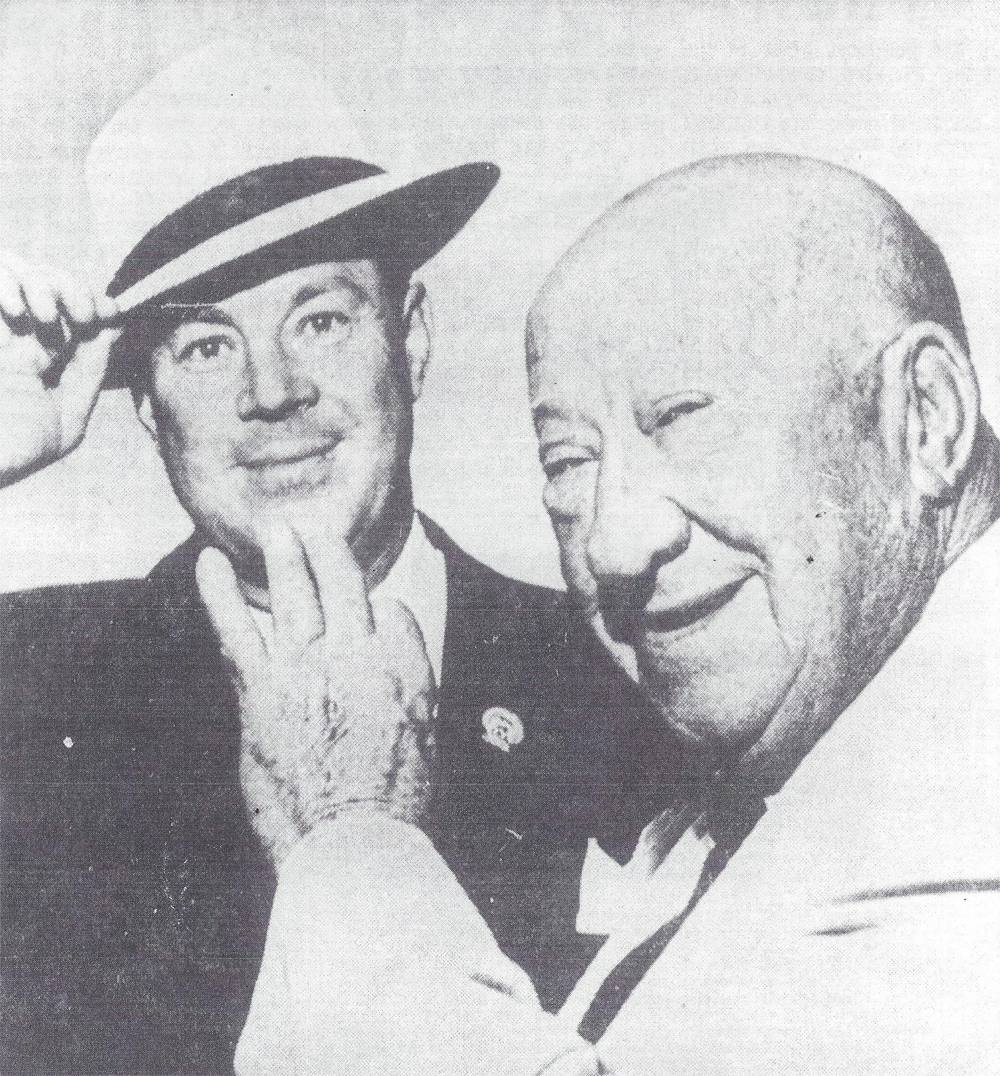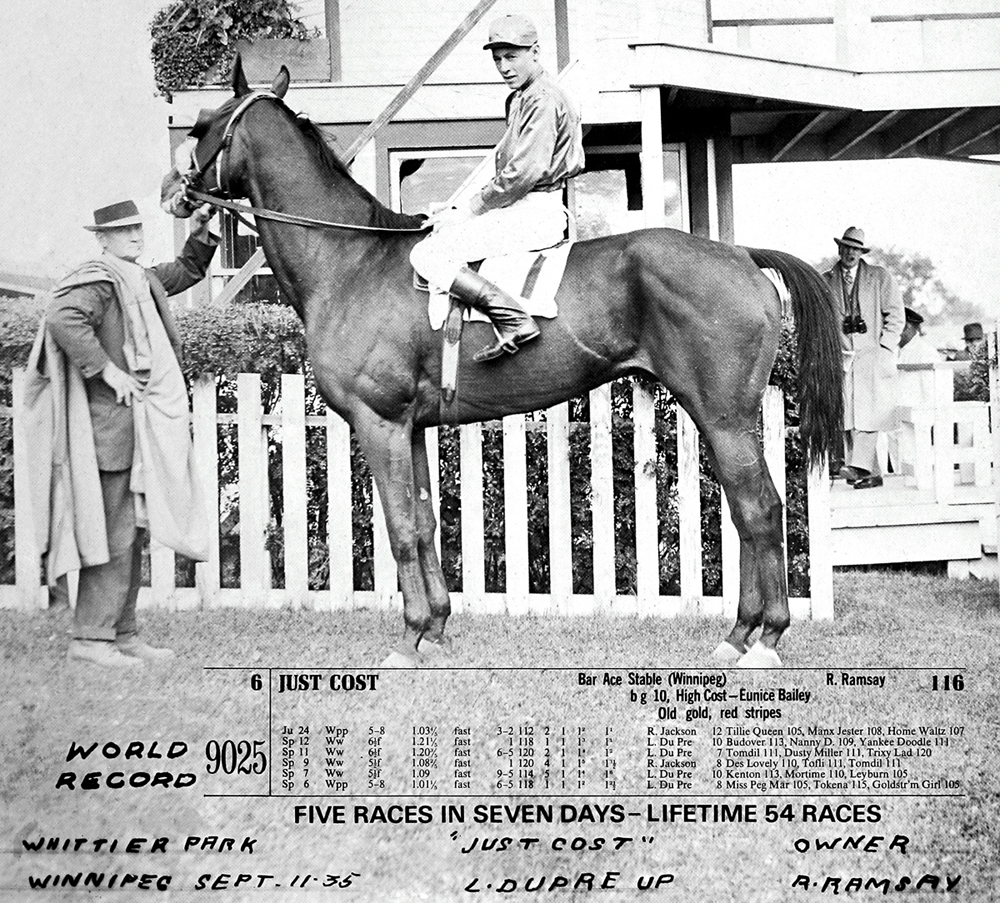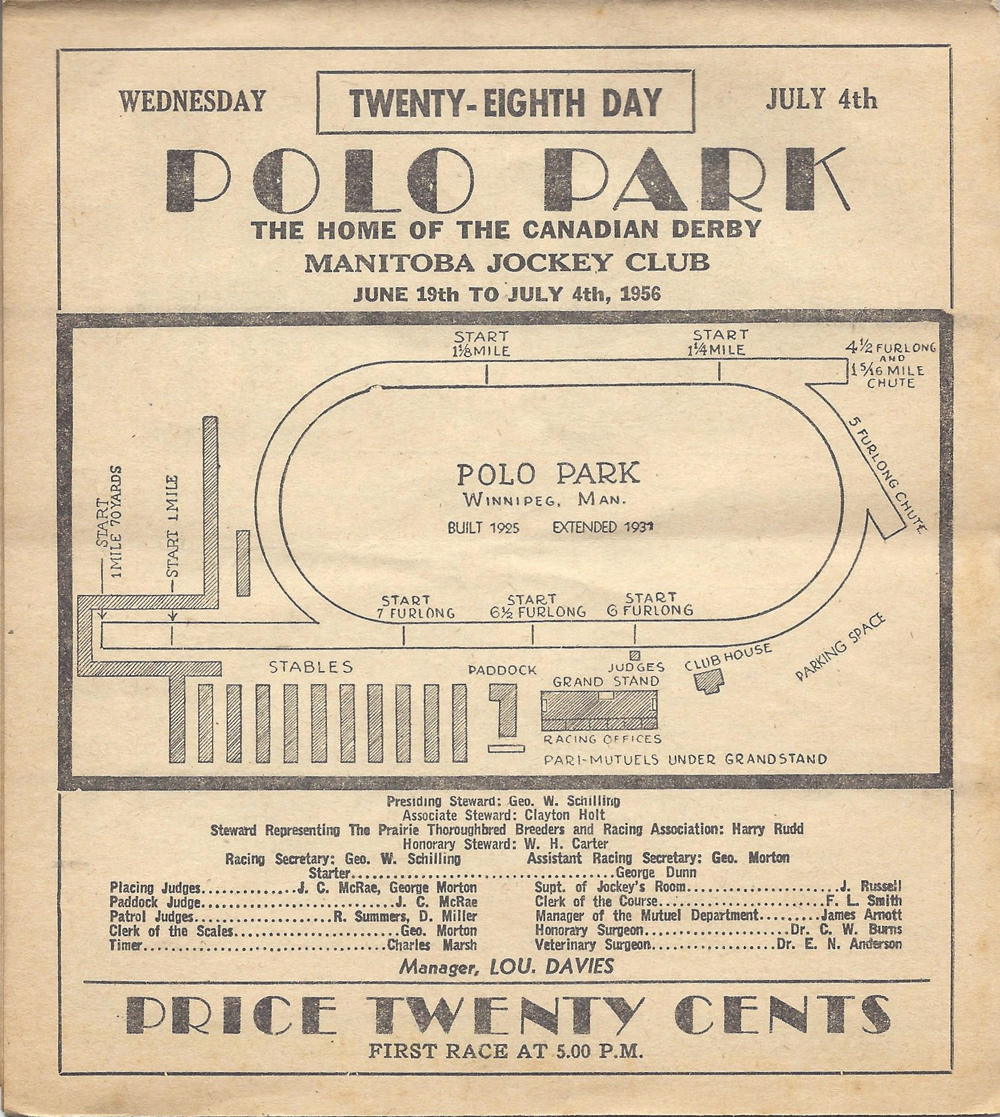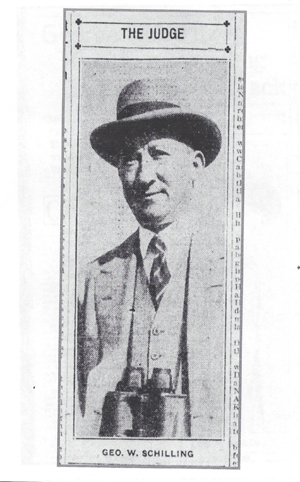
Judge George Schilling (right) with Scotty Kennedy
by Bob Gates
George Schilling was a senior racing official in Mexico, the United States and Canada and among the most respected figures in the sport. Schilling had a keen mind, was scrupulously honest and stern but fair.
He was born on January 17, 1886 in San Francisco and got his start as a stable and exercise boy. Early in his working career he was a newspaper writer, but in time was able to blend his love for the thoroughbred into a full-time job as a racing official.
Schilling found his way to Winnipeg in the fall of 1925 thanks to R. James Speers. Speers was looking for a presiding steward that would bring an air of respectability to the local racing scene. He was the presiding steward for Speers’ race operations at River Park, Whittier Park and Polo Park racetracks.
Somewhere along the line, newspaper types started to refer to Schilling as George “Washington” Schilling and he became known as the “Judge.” We can’t be sure where “Washington” came from, but it was a nice touch that went well with the title, Judge. Only thing was, his name was George “William” Schilling, but I guess the Judge liked how it sounded and never sought to correct the error.
Schilling was the first man to introduce the public address system to call a horse race. In addition, he was the first presiding steward to oversee the use of the mechanical starting gate, which made its racing debut at Whittier Park in 1939.

Just Cost. First horse ever to be disqualified for a bad test in Winnipeg.
Over the years Schilling was called upon to deal with some significant issues as presiding steward. In September 1935 there was the matter of Bob Ramsay and his horse Just Cost, who won five races in seven days.
In a sincere attempt to clean up racing’s image, the saliva test had been introduced in 1935. It didn’t take long before Judge Schilling’s ruling was posted at Whittier Park on Friday, September 13, a Friday that turned out to be unlucky for Bar Ace Stable’s Bob Ramsay:
“A test of the saliva taken from the horse, Just Cost, racing in the 3rd race, September 9th, having shown that the drug caffeine had been used. Trainer Bob Ramsay and the horse Just Cost are suspended.”
Bob Ramsay was the first to be ruled off because of a failed test.
Another major ruling of Judge Schilling came in August 1950 in Edmonton where a heavily favoured horse finished third in a race. Following an investigation into allegations of a bribe, nine jockeys and two Edmonton businessmen were ruled off prairie racetracks for “corrupt practices.”

Last day of racing at Polo Park. July 4, 1956.
Judge Schilling probably didn’t realize it at the time, but his career on the Canadian prairies began to fade in July 1955 with the death of Speers. One year later, the last race ever contested at Polo Park went to post at 8:53 p.m. on Wednesday, July 4, 1956. It was a sad time for Schilling, he was present for Polo’s first year of operation in 1925 and 32 years later, he was there to turn off the lights — one last time.

In January 1957, the James Speers Corporation announced that Judge Schilling had resigned his post as presiding steward of the prairie racetracks. While he would continue as a race official in the United States and Mexico, the Canadian Prairies would be looking for his replacement.
In 1964, the Judge accepted an invitation from Assiniboia Downs to be a special race presenter for the 6th running of the R. James Speers Memorial Handicap. Schilling described Speers as his closest friend in Canada and he returned to Winnipeg one last time to honour the memory of his old friend.
Judge George W. Schilling veteran thoroughbred racing official died in San Diego at the age of 83 on August 14, 1969.
“Thoroughbred racing is richer and better because of George W. Schilling.” – Maurice Smith, Sports Editor of the Winnipeg Free Press August 16, 1969
Schilling was active as steward up to the time of his death. His career in racing spanned more than 60 years. The racetrack was his courtroom and his word was the law.
Ladies and gentlemen, Judge Schilling has left the courtroom…
We are adjourned.
